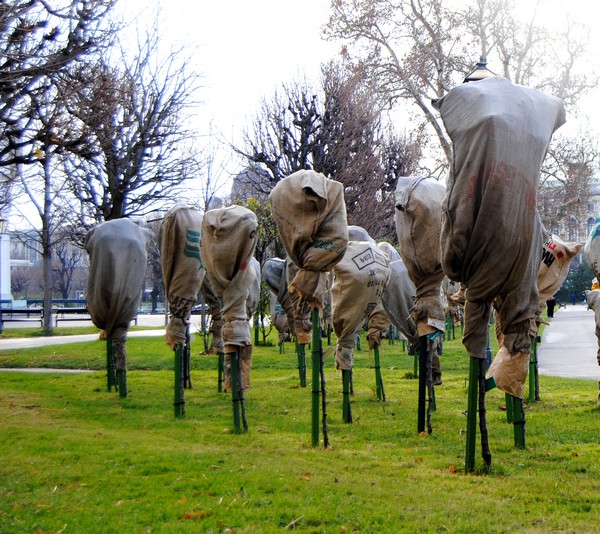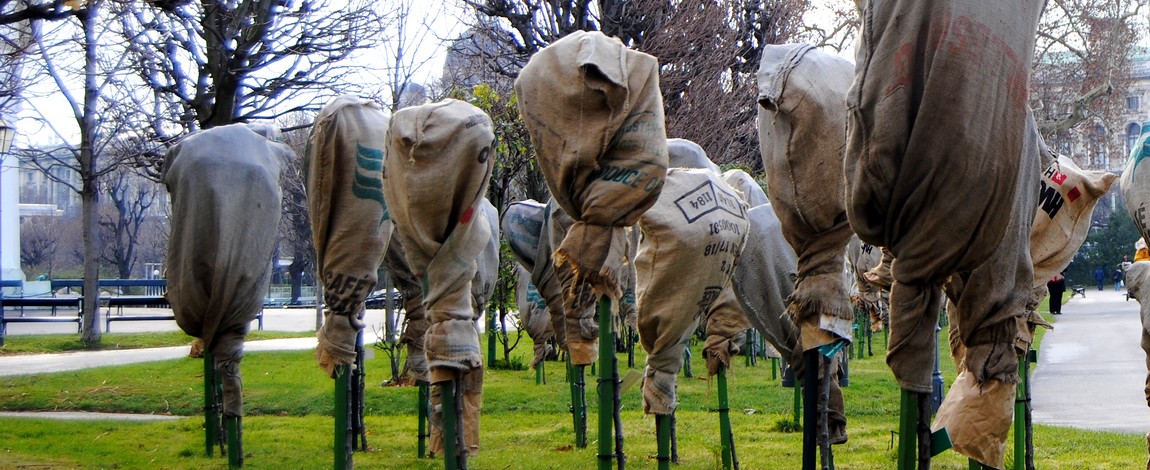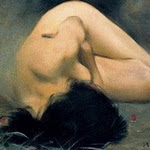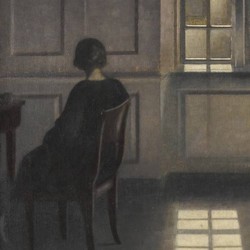
A reader wrote me last Wednesday about the post published that day, and about the song Der Fichtenbaum. She told about trees and exiles, and she made me think of a small, moving Lied of Hanns Eisler, Ostersonntag, an unexpected cherry of Grieg. I wrote down in my notebook the song to write about it during the second quarter, but the next day Russia attacked Ukraine. Another war began in Europe, we watched again images of refugees fleeing, and Eisler's song no longer left my mind.
Bertolt Brecht left Germany in 1933, when Hitler arrived in power. His first destination was Denmark; in 1939 he had to leave first to Sweden and then to Finland, forced by the Nazis, and in May 1941, he left to Los Angeles via Moscow and Vladivostok. In those years, he wrote poems where he mentioned the harshness of exile and his suffering for those who remained in Germany. Actress and writer Margarete Steffin, who accompanied Brecht, gathered them and edited and printed a collection, which, on leaving for Russia, the poet offered as a farewell gift to friends who had welcomed them. Steffin did not arrive in America; seriously ill with tuberculosis, she had to stay at a sanatorium in Moscow, where she died a few weeks later at thirty-three; then Brecht named his collection after her: Steffinsche Sammlung.
This collection includes the triptych Frühling 1938 [Spring 1938], and its first part is this week's poem. It speaks of a late snowstorm on Funen, and how his son Stefan urges him to see an apricot tree threatened by frost, while he's writing against those who wage war. The daily gesture of protecting the young tree with sacks becomes a new gesture here.
Brecht and his friend Eisler met again in 1942 in Los Angeles, when the composer arrived after spending several years in New York. He was weighed down by almost ten years of exile and the fate of his people in Germany, and he didn't fit into such a different world as Hollywood. He wrote at that time a series of songs that today, after much work by musicologists, we know as Hollywooder Liederbuch [Hollywood Songbook]. The first sixteen songs are from poems of the Steffinsche Sammlung, and Ostersonntag [Easter Sunday] is the twelfth. It's a very short song, like many in the Songbook, and it also shares with many of them its contained emotion. We'll hear it performed by Holger Falk and Steffen Schleiermacher.
In the score of one of the Hollywood songs, Eisler wrote: “In a society that understands and loves such a songbook, life will be lived well and without danger.”
Heute, Ostersonntag früh
Ging ein plötzlicher Schneesturm über die Insel.
Zwischen den grünenden Hecken lag Schnee. Mein junger Sohn
Holte mich zu einem Aprikosenbäumchen an der Hausmauer
Von einem Vers weg, in dem ich auf diejenigen mit dem Finger deutete
Die einen Krieg vorbereiteten, der
Den Kontinent, diese Insel, mein Volk, meine Familie und mich
Vertilgen mag. Schweigend
Legten wir einen Sack
Über den frierenden Baum
Today, early on Easter Sunday,
A sudden snowstorm passed over the island.
Snow lay between the pale green hedges. My young son
Came and led me to a little apricot tree leaning against the wall of the house,
Taking me away from a line of poetry in which I was pointing a finger at those
Who were preparing this war, which must
Destroy this continent, this island, my people, and my family and me.
Silently,
We placed a piece of sacking
around the freezing tree.
(translation by Sharon Krebs)


















Comments powered by CComment